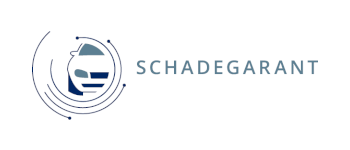All processes automated
‘We’re a small company with just 11 employees, but we handle about 230,000 claims annually. As you can imagine, almost all the processes are automated, and we’re completely dependent on these processes functioning properly.’
Quick and efficient
Schadegarant uses its own platform, which is linked to AFAS. All the important data of damage repairers, for example, is stored in AFAS, which is then automatically synchronized with Schadegarant's own platform. Jeroen explains how this works in practice: ‘Imagine you have an accident in your car. You call your insurer, who refers you to our search page or a proprietary search page with all the body shops affiliated to Schadegarant. At that moment you use our system, and therefore the data in AFAS.’
He continues: ‘You choose a repairer and have your car repaired. The repairer reports the damage in our platform, where the financial settlement is also arranged directly between the repairer and the insurer. You don’t get involved in this part at all. This process is therefore fully automated, and works quickly and efficiently for everyone involved.’
Management means working together on improvements
It’s obviously clear how important it is to Schadegarant that the system is set up as efficiently as possible and functions properly. This is where CAS comes in. Jeroen explains: ‘CAS helps us with various things, such as resolving problems and developing new parts. Every two months, we schedule a day with Thijs, our assigned CAS consultant. We go through my wishes my colleagues’ wishes, look at which processes can be improved, and share our thoughts about which solutions are appropriate.’
Jeroen laughs: ‘The great thing about CAS is that they take the time to explain things. That helps me to understand how something works, and the next time I can do it myself. They’re not worried about losing work as a result; their chief concern is to optimize the system. I think that’s an excellent attitude!’ Incidentally, not everything depends on the presence of the assigned consultant. Jeroen: ‘We’re also in regular contact with Thijs between such meetings, for simple questions or if a field needs to be added somewhere, for example. If he’s not available, someone else from CAS always is. I call the helpdesk, and nine times out of ten they can help me. They often check whether Thijs agrees with the solution, as he’s the one who knows all the ins and outs of our system. After that, they provide me with all the support I need. It’s reassuring to see that so much expertise is shared internally at CAS in this way.’


